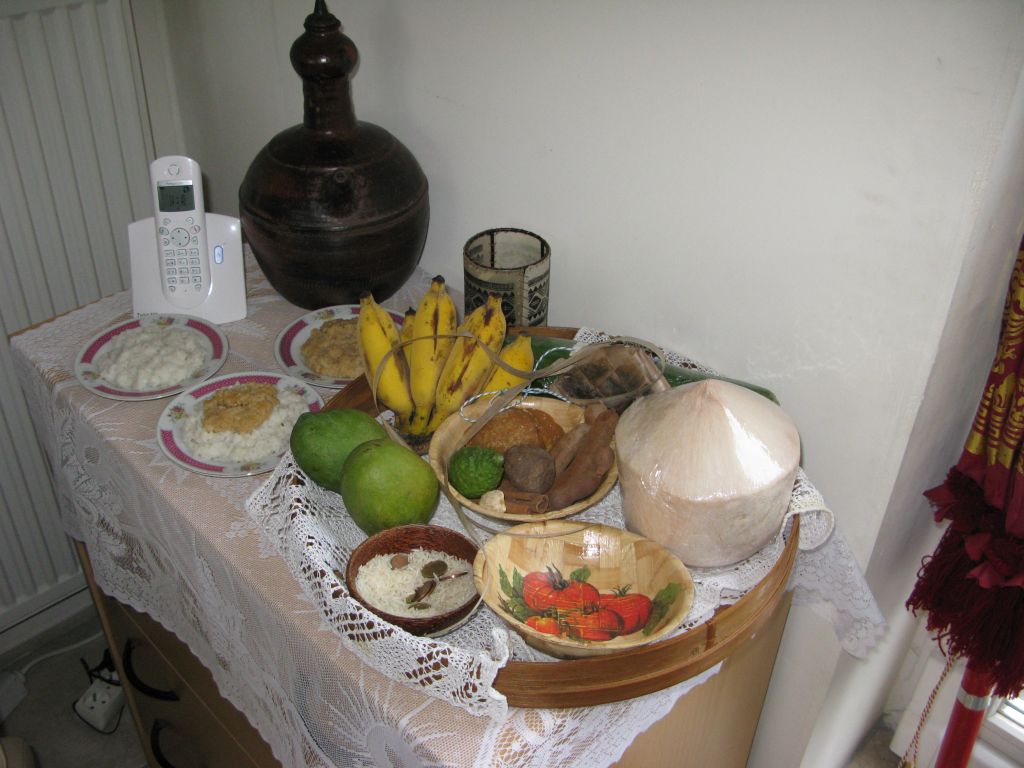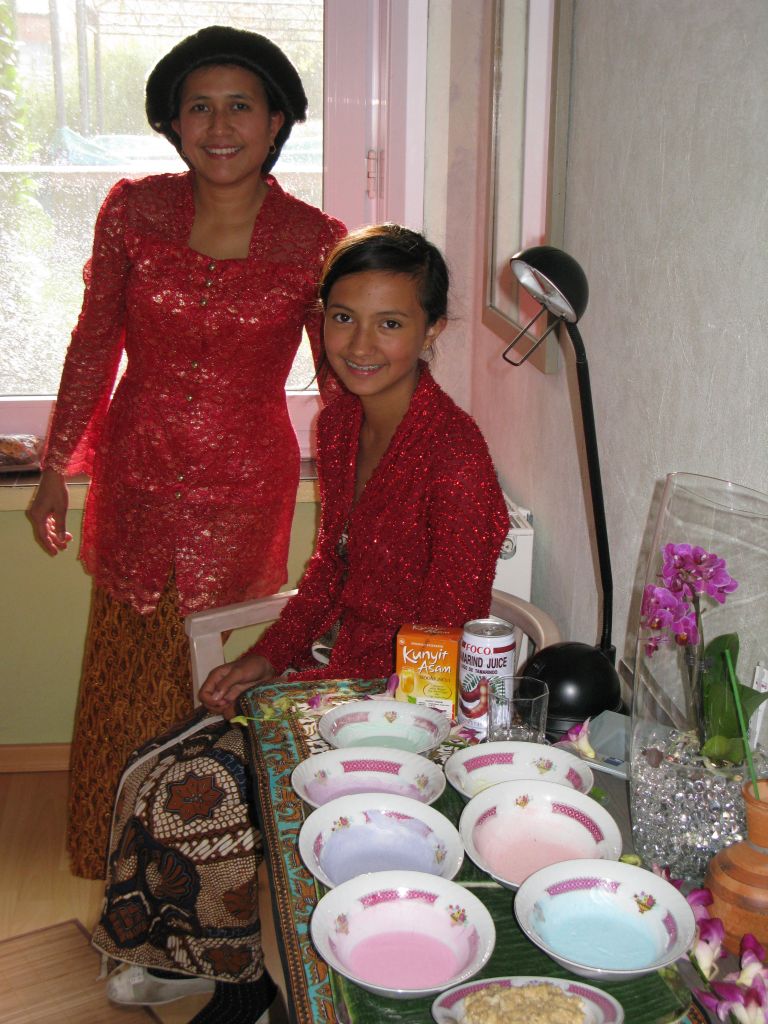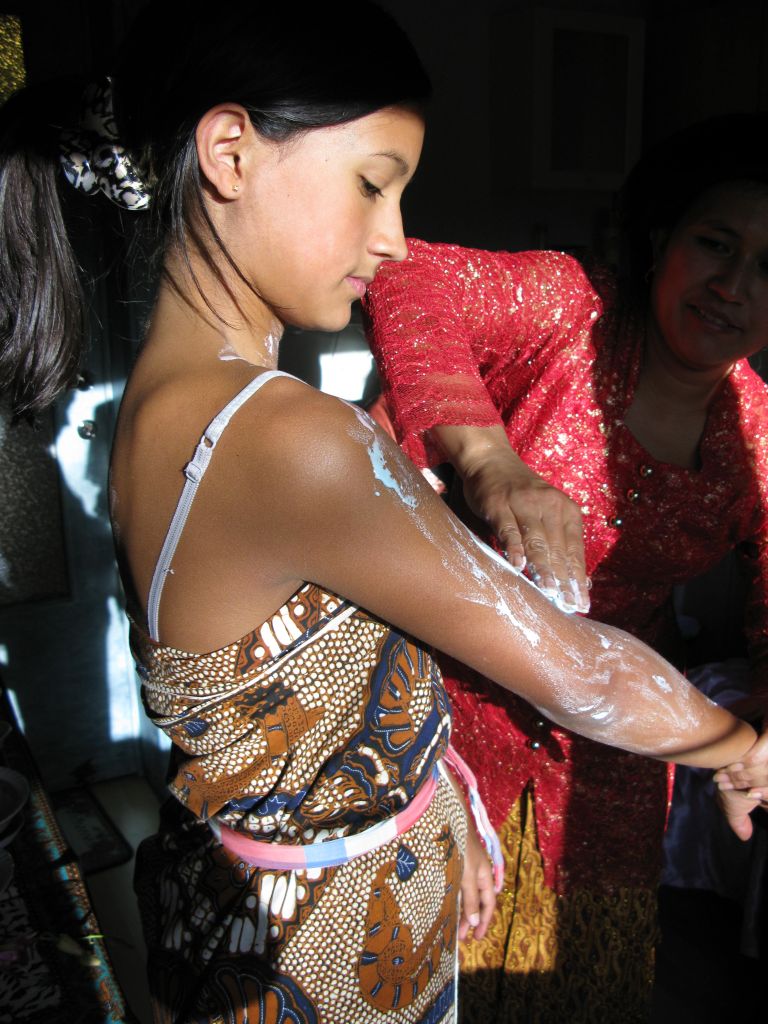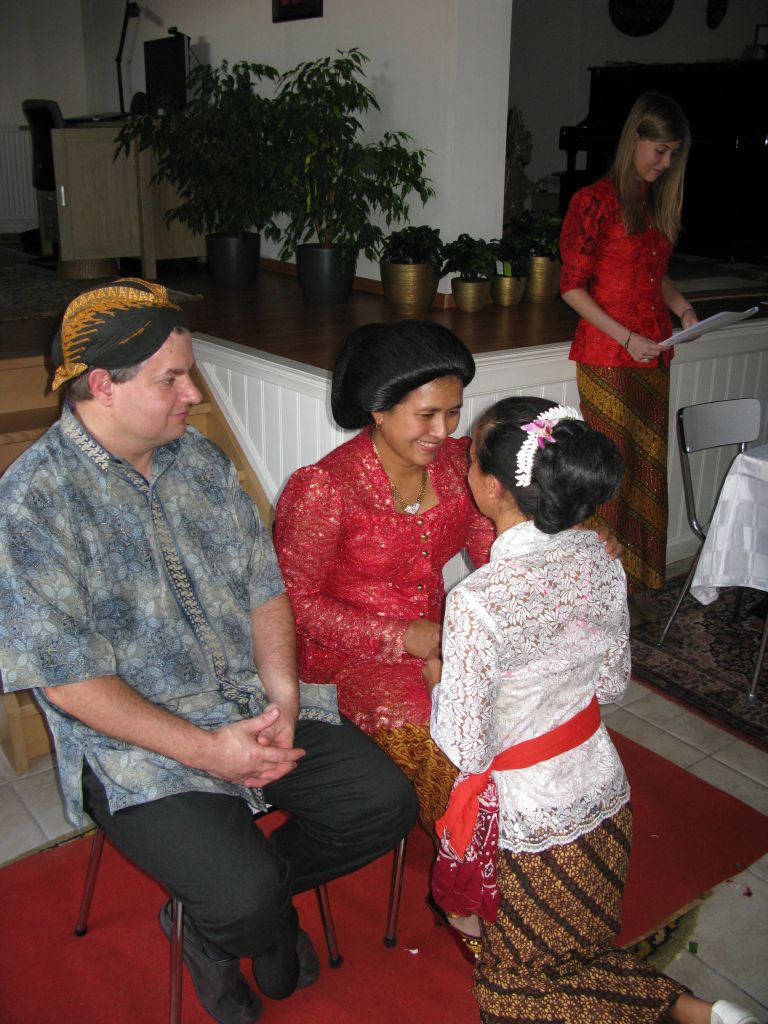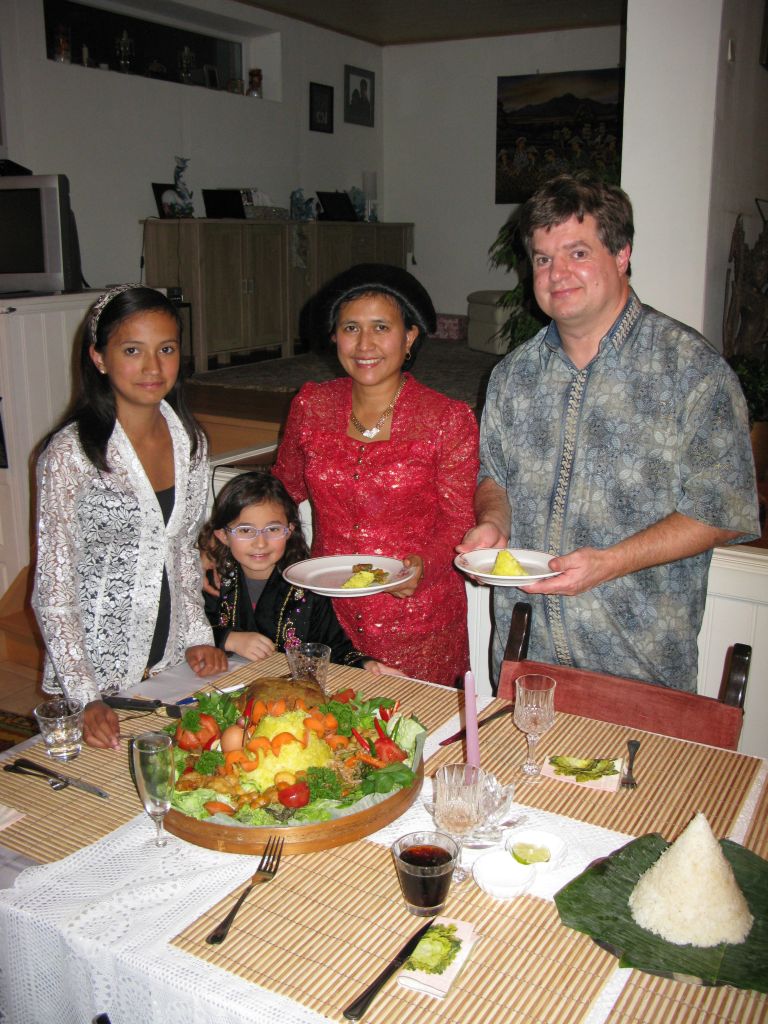Tarapan Ceremony: Transition ceremony for girls.
The Tarapan is a transition ceremony. The ceremony takes place just after the first menstruation. The age at which this ceremony is held is therefore not the same with every girl. The Tarapan ceremony is held exactly one week after the menstruation has been completed.
At this ceremony one should certainly not forget to offer sacrifices to the spirits around us. According to the Javanese faith people live in different stages: pregnancy, birth, being a child, being an adult, marriage and death. At every stage of life there is the chance of danger, misfortune, failure and disaster. These negative forces are more threatening in the transition period between each stage. So during the transition it is all the more important to strengthen and ask the favors of the spirits in a ceremony. Sacrifices are made to the spirits of the ancestors. In addition to offering these gifts, other symbols are used that will positively influence the girl's life.
Sajan offering
The offering for the Siraman ceremony: Sajen. Traditionally, an offering in Javanese rituals is considered very important. It has a deep symbolic meaning.
Tarapan Preparation
Before the ceremony can be started, the place has to be decorated and all the necessities have to be set up. The room is festively decorated with flowers, plants, palm and banana leaves and batik cloths. The whole family is invited and dressed with traditional batik sarongs and kebayas.
MoreSengkeran
Jasmine can not leave her room (or the house) for 7 days following her first menstruation. She is sitting on a chair on which a white cloth is lying with some herbs. The hair is tied in a dot (chastity). It is not allowed to wash in the shower during that period. She is accompanied in that period by older women and by people with more life experience who give her valuable advice.
MoreSiraman Ceremony
This ceremony is set on the last day (the seventh day) of the isolation or Sengkeran. Jasmine is smeared with rice flour in seven colors in a separate room. The rice flour is mixed with orange jasmine flower (daun kemuning), ground rice and herbs (mangir / lulur), pandan leaf (daun pandan). She is wearing a batik fabric (cindhe) wrapped around her.
MoreSungkeman (Upacara Ngabekten) ceremony
The ceremony continues with Sungkeman: showing respect to the parents. The parents are invited to come foreward and take a seat. Jasmine is accompanied to her parents and kneels while apologizing to her father for mistakes she may have committed. Then she does the same for her mother. Once ready, both parents stand up. The other guests also stand up.
MoreTumpeng party
A Javanese ceremony is traditionaly concluded with a party, Tumpeng Robyong. The table is set for a traditional Indonesian meal with Tumpeng Robyong, a yellow cone-shaped pile of rice with on top hard boiled eggs, trassi, onion and red pepper. There are seven types of side dishes: ayam ingkung (spiced fried chicken), telur rebus (hard boiled eggs), urapan sayur (mixed vegetables with coconut), sambal goreng kreni (meatballs in mildly spiced sauce), udang goreng (fried shrimps), perkedel kentang (spiced potato), perkedel jagung(corn croquettes) and rendang daging (Indonesian stewed beef).
More